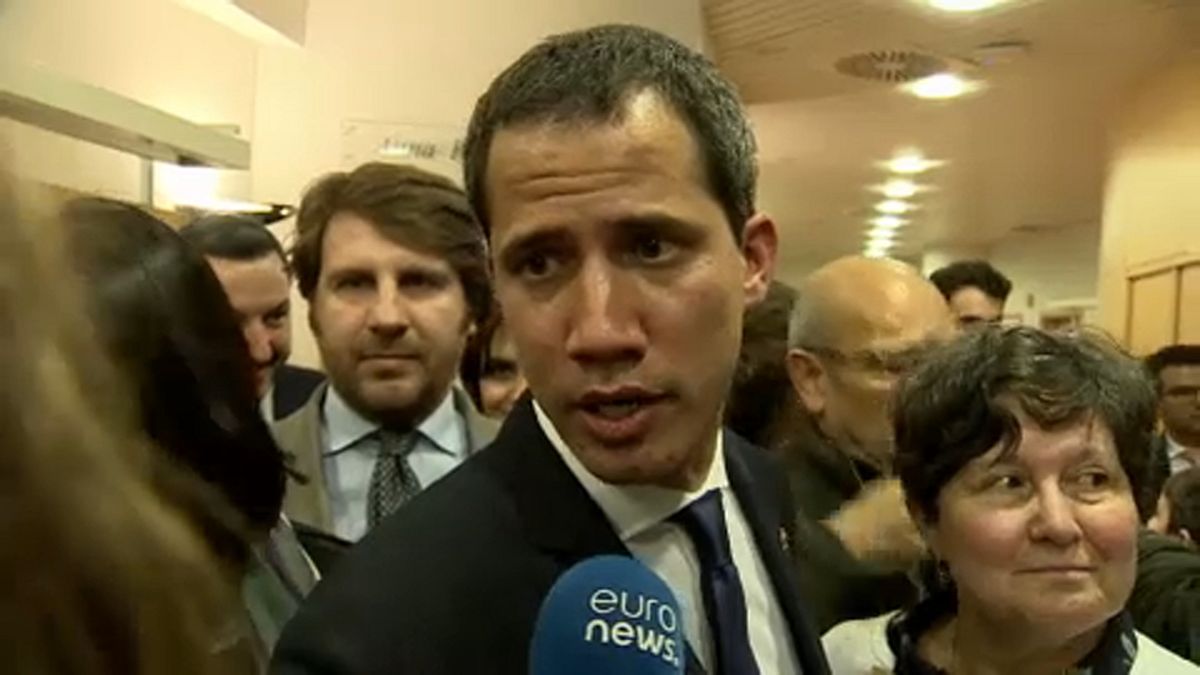Venezuela's opposition leader Juan Guaidó was in Brussels to try and revive support for tougher sanctions on Venezuela's president, Nicolás Maduro
The Venezuelan opposition leader, Juan Guaidó, was in Brussels seeking support to give fresh impetus in his fight against President Nicolás Maduro.
Guaidó — who met the EU's foreign policy chief Josep Borrell — told Euronews he wanted stronger sanctions again Maduro.
"It has not been a simple struggle, it has been a struggle that has lasted for years and now Venezuelans are being heard through my voice here in the European Parliament," said Guaidó, who defied a travel ban to begin an international tour.
"Now comes the stage of actions. We must improve and point to sanctions that pressure the dictatorship to achieve free presidential elections."
Guaidó declared himself interim president of Venezuela last year after claiming the 2018 election that saw Maduro re-elected was rigged.
He is recognised as legitimate president by more than 50 countries but Venezuela's military has remained loyal to Maduro.
Earlier this month, police stopped Guaidó from entering parliament where he was standing for re-election as National Assembly leader.
His cause has received support in the European Parliament.
"The sanctions are enough, no," said Spanish MEP Jordi Cañas. "But they have to be applied in more depth and to more people. We must press the regime and it is obviously a regime that controls power."
Other EU parliamentarians, meanwhile, have called for fresh presidential elections.
Spanish MEP Javi Lopez said: "What the European Union has to do is support the Venezuelan people and a democratic, fair exit, with presidential elections that allow them to get out of the current situation and, above all, deal with the serious humanitarian situation in Venezuela."


